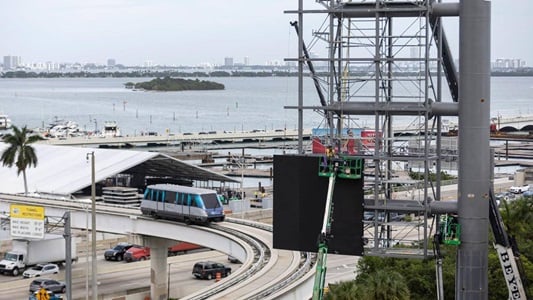Will construction insurance costs kill Florida’s real estate boom?
 The cost of construction insurance in Florida is having developers second-guess their willingness to invest in the Sunshine State, while business leaders are growing concerned that higher insurance costs may slow Florida’s booming real estate sector.
The cost of construction insurance in Florida is having developers second-guess their willingness to invest in the Sunshine State, while business leaders are growing concerned that higher insurance costs may slow Florida’s booming real estate sector.
But these fears are overblown, and relief is taking hold, thanks to the Florida Legislature.
While rising insurance costs will force developers to bring more creativity to their contracts, changes to the state’s litigation standards will soon ease Florida’s insurance crunch.
There’s no denying that over the last several years, Florida has become an increasingly difficult state for insurers to operate in. The last few years have brought a handful of particularly devastating storms to our beaches. Hurricanes Irma (2017), Michael (2018), and Ian (2022), in particular, created major liabilities for insurance providers.
What’s mainly behind Florida’s insurance squeeze is litigation brought against both insurers and developers—litigation that has completely swamped the insurers in particular and is driving the steep rate increases.
Despite accounting for just 7 percentage of all insurance claims, Florida cases made up an astonishing 76percentage of all lawsuits brought against insurance companies nationwide. In Florida’s tri-county area, Miami-Dade, Broward and Palm Beach, 28 percentage of closed claims lead to lawsuits — compared to just10 percentage statewide.
Litigation has become standard operating procedure, as Florida’s existing construction defects law birthed an entire cottage industry dedicated to exploiting its standards.
Losses mounted for the insurance companies and on the secondary market. The result: the cost of builder’s risk insurance skyrocketed. What formerly carried a premium cost of 1-2 percentage of the total project cost now stands at 7-8 percentage.
Developers are now examining projects whose potential performance has been blown up, as profit margins are eaten up by the one-two punch of high insurance and construction costs. But the good news for all developers is that help is on its way.
During the 2023 session, lawmakers passed Senate Bill 360, an update to the Florida construction defect statute. Instead of allowing simple technical violations to trigger legal action, the legislature added a materiality component, helping to protect developers from frivolous lawsuits.
The bill also lowered the statute of repose or the statute of limitation to sue in the state — down to seven years from the previous status quo of 10 years from the completion of construction. This means we will inevitably see fewer lawsuits and lower losses in time. As the liability for insurers goes down, the cost savings should eventually be passed onto developers.
But construction projects needn’t wait that long to begin. Despite a bit of sticker shock, developers can still make a project work now if they’re savvy about structuring their contracts.
The default for most builder’s risk and general liability insurance contracts, for example, is to have developers pay the entire premium up front, before construction begins. On a $300 million project, developers essentially need a $25 million down payment just to begin the project. That’s a huge barrier.
Instead, developers can work with their brokers, a key ally in a construction project, to lower that initial cost by segmenting the amount of insurance they buy based on the project’s status.
To lower that initial cost, we’re increasingly seeing deals that allow developers to pay as the project progresses. After all, the first year of a Florida project can sometimes be spent just on soil mixing.
With a bit of creativity, developers have the potential to save millions of dollars and improve their bottom line. Of course, it’s not yet assured how the new construction liability statutes will impact plaintiff litigation against developers and contractors.
Having building plans reviewed by third parties to ensure that they meet state building codes and statutory requirements is one solution, as is having a qualified engineering company oversee the project.
Insurance costs may be high for the moment, but should go down. That means that Florida’s construction boom is far from over for those willing to dive in.
*This was republished with permission from the Miami Herald. Click to access the publication
